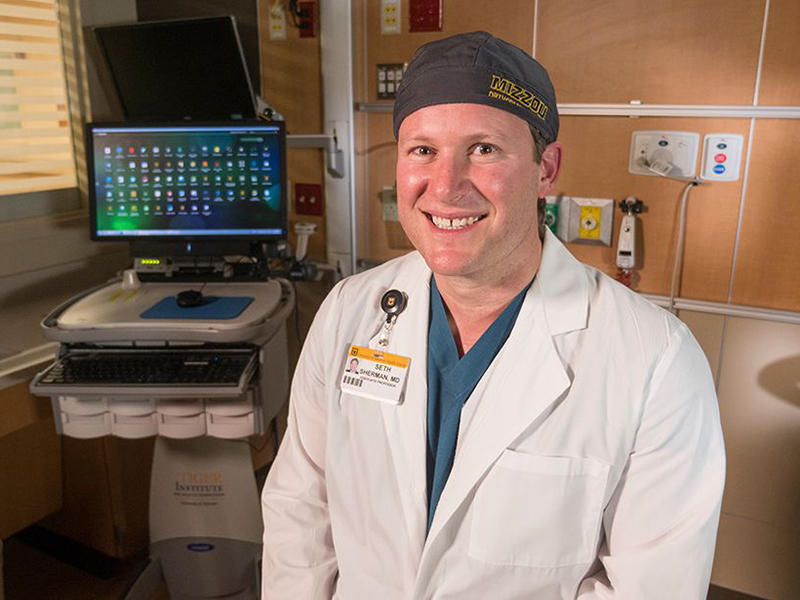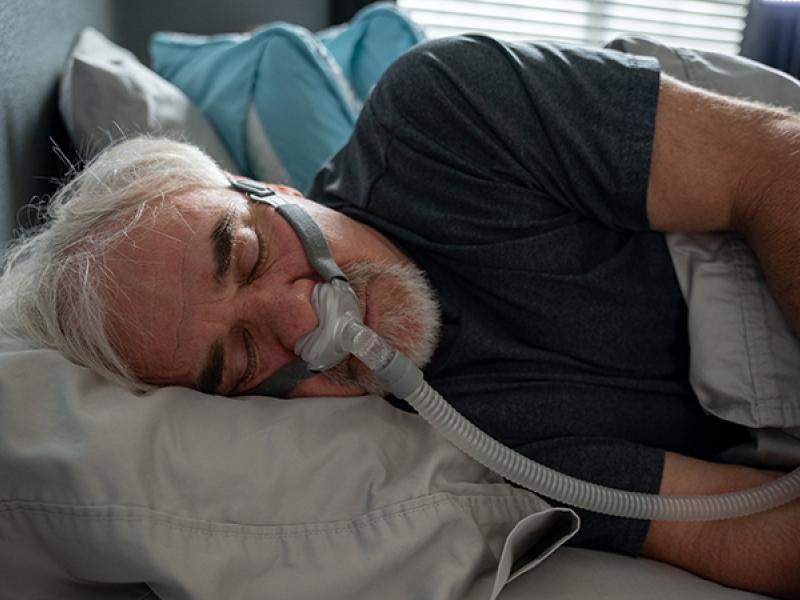
A new biological implant helps the body regenerate its own cartilage.
Seth L. Sherman, MD, a sports medicine orthopaedic surgeon at University of Missouri Health Care’s Missouri Orthopaedic Institute, recently became one of the first American surgeons to enroll patients in a clinical research study aimed at earning FDA approval for a new knee-cartilage implant.
Agili-C™ (CartiHeal, Israel) is a new implant designed to help patients with knee-cartilage defects regenerate their own healthy cartilage. The implant has been shown to be safe and effective in a series of clinical trials previously conducted in Europe and Israel. Sherman is one of 15 primary investigators in the United States conducting the FDA-approved study, which is the final step before earning FDA approval for the implant.
“We are thrilled to be on the leading edge of orthopaedic sports medicine and joint preservation,” Sherman said. “In the U.S., there are limited options for off-the-shelf cartilage repair that can be performed during a single surgical procedure. Benefits of this technology include its relatively low cost, ease of use, and strong basic science and clinical track record.”
Cartilage damage is a common knee problem that occurs in patients of all ages. It can happen as a result of an injury, like a blow to the knee, or due to wear and tear over time. In any case, it causes knee swelling, stiffness and pain that can reduce function and decrease the quality of life.
The Agili-C™ implant is a cell-free implant made of the inorganic exoskeleton of sea coral. The implant can be used in this study to treat a variety of cartilage defects and patient types, which is another reason it is attractive to orthopaedic surgeons.
“Often in studies like this one, we can enroll only a very strict subset of young, active patients with a single, isolated cartilage defect,” said Sherman. “In reality, that’s not the type of patient we see every day. This implant is different because it’s medically indicated for a wide range of situations, including patients with multiple cartilage defects and even those with mild to moderate osteoarthritis. We can use it in patients who are in their 20s or in those who are in their 60s. This versatility allows us to find more patients who may benefit from this procedure.”
Those who qualify for the study are randomly assigned either one of the traditional surgical options or the new implant. So far, Sherman has enrolled four patients in the study. He plans to enroll at least 25 before submitting his research to the FDA.
The implant is manufactured by CartiHeal, a medical device company headquartered in Kfar Saba, Israel and Closter, New Jersey. To date, more than 400 patients in Europe and Israel -- where the device has already been approved -- have received the new implant. The Agili-CTM implant is not available for sale in the United States. It is an investigational device limited for use in the device study.
To find out if you qualify for this study, visit cartiheal.com.





